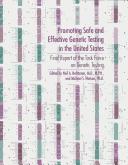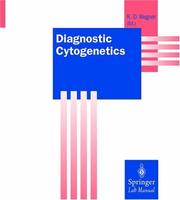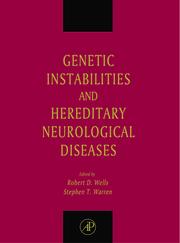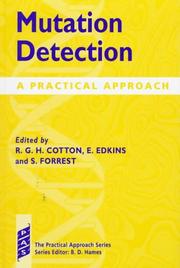| Listing 1 - 10 of 15 | << page >> |
Sort by
|

ISBN: 0801859522 0801859727 Year: 1998 Publisher: Baltimore Johns Hopkins university press
Abstract | Keywords | Export | Availability | Bookmark
 Loading...
Loading...Choose an application
- Reference Manager
- EndNote
- RefWorks (Direct export to RefWorks)
Despite remarkable progress, much remains unknown about the risks and benefits of genetic testing. No effective interventions are yet available to improve the outcome of most inherited diseases; negative test results might not rule out future occurrence of disease, and positive test results do not necessarily mean the disease will inevitably develop. In view of this uncertainty, the Working Group on Ethical, Legal, and Social Implications of Human Genome Research at the National Institutes of Health and Department of Energy created the Task Force on Genetic Testing. Comprising representatives of fifteen major stakeholders in genetic testing and five government agencies involved with testing, the task force was charged with reviewing genetic testing in the United States and making recommendations to ensure the development of safe and effective genetic tests. In Promoting Safe and Effective Genetic Testing in the United States the members of this task force present the conclusions of their study. They begin by describing general principles involved in genetic testing, including informed consent, testing of children, confidentiality, and discrimination. In view of the uncertainty of genetic test results, a task force was set up and charged with reviewing genetic testing in the US and making recommendations for the development of safe and effective testing. This work presents the conclusions of their study. They describe methods and policies to ensure the safety and effectiveness of new genetic tests, including criteria for developing tests and ways of ensuring compliance with those criteria. They then discuss how to ensure the quality of laboratories that perform genetic tests, including the role of laboratory personnel and methods of monitoring laboratory performance. They show how health care professionals outside the field of genetics can better understand the uses of genetic testing, and offer suggestions for changes in these professionals' education and training. Finally, they offer a look at testing for rare inherited genetic disorders.

ISBN: 081921762X Year: 1998 Publisher: Harrisburg Morehouse
Abstract | Keywords | Export | Availability | Bookmark
 Loading...
Loading...Choose an application
- Reference Manager
- EndNote
- RefWorks (Direct export to RefWorks)
Human chromosome abnormalities --- Human chromosome abnormalities --- Diagnosis --- Moral and ethical aspects --- Diagnosis --- Religious aspects --- Episcopal Church

ISBN: 3540646027 Year: 1998 Publisher: Berlin : Springer,
Abstract | Keywords | Export | Availability | Bookmark
 Loading...
Loading...Choose an application
- Reference Manager
- EndNote
- RefWorks (Direct export to RefWorks)
Genetic disorders --- Human chromosome abnormalities --- Human cytogenetics. --- Diagnosis.

ISBN: 0127429352 Year: 1998 Publisher: San Diego (Calif.) : Academic press,
Abstract | Keywords | Export | Availability | Bookmark
 Loading...
Loading...Choose an application
- Reference Manager
- EndNote
- RefWorks (Direct export to RefWorks)
Human chromosome abnormalities. --- Nervous system --- Neurogenetics. --- Diseases --- Genetic aspects.

ISBN: 0801857422 9780801857423 Year: 1998 Publisher: Baltimore : Johns Hopkins University Press,
Abstract | Keywords | Export | Availability | Bookmark
 Loading...
Loading...Choose an application
- Reference Manager
- EndNote
- RefWorks (Direct export to RefWorks)
Genetics, Medical --- Hereditary Diseases --- Phenotype --- Human gene libraries --- Human chromosomes --- Human chromosome abnormalities --- Catalogs and collections --- Human gene libraries. --- Catalogs and collections. --- bibliography. --- encyclopedias. --- Human chromosomes - Catalogs and collections --- Human chromosome abnormalities - Catalogs and collections --- Bibliography. --- Encyclopedias.

ISBN: 0191565695 1280375485 9786610375486 0585484139 9780585484136 9781280375484 9780191565694 0199636575 9780199636570 0199636567 9780199636563 1383049351 Year: 1998 Volume: 188 Publisher: Oxford New York IRL Press at Oxford University Press
Abstract | Keywords | Export | Availability | Bookmark
 Loading...
Loading...Choose an application
- Reference Manager
- EndNote
- RefWorks (Direct export to RefWorks)
This volume offers the latest tried and tested protocols for a range of detection methods, from the labs of the leading researchers in the field.
Mutation (Biology) --- Molecular genetics --- Chromosome abnormalities --- Chromosomal aberrations --- Chromosome anomalies --- Chromosomes --- Karyotypes --- Genetics --- Molecular biology --- Variation (Biology)

ISBN: 1859961460 Year: 1998 Publisher: Oxford : BIOS,
Abstract | Keywords | Export | Availability | Bookmark
 Loading...
Loading...Choose an application
- Reference Manager
- EndNote
- RefWorks (Direct export to RefWorks)
Ethics, Medical. --- Genetic Screening --- Genetic disorders in children --- Genetic screening. --- Human chromosome abnormalities --- In infancy and childhood. --- Diagnosis. --- Diagnosis.
Book
ISBN: 1474200389 1281041793 9786611041793 1847312969 Year: 1998 Publisher: Oxford ; Portland : Hart Publishing,
Abstract | Keywords | Export | Availability | Bookmark
 Loading...
Loading...Choose an application
- Reference Manager
- EndNote
- RefWorks (Direct export to RefWorks)
"As developments in human genetics proceed apace,the regulation of genetic research and its applications is set to represent one of the major legal challenges of the next century. At every turn - in the fields of medicine and commerce, in insurance and employment, in the family and even in the criminal justice system - advances in human genetics threaten to transform our understanding of ourselves and the basis upon which we relate to one another. This special issue of the Modern Law Review addresses a range of key issues - conceptual, ethical, political and practical - arising from the regulatory challenge confronting the law in the face of the genetic revolution."--Bloomsbury Publishing.
Genetic disorders. --- Human chromosome abnormalities --- Medical genetics --- Diagnosis --- Law and legislation. --- Human genetics --- Genetic engineering --- Moral and ethical aspects.
Book
ISBN: 2880491207 9782880491208 Year: 1998 Publisher: Genève Médecine et hygiène
Abstract | Keywords | Export | Availability | Bookmark
 Loading...
Loading...Choose an application
- Reference Manager
- EndNote
- RefWorks (Direct export to RefWorks)
La biologie moléculaire rend actuellement possible de prédire plus ou moins exactement, à travers une analyse génétique, si une personne développera plus tard dans sa vie une maladie héréditaire. Deux maladies héréditaires graves se manifestant vers l'âge de 40 ans et actuellement prédictibles sont le cancer du sein héréditaire, et la chorée de Huntington, une affection neurodégénérative progressive, mortelle, caractérisée par des mouvements brusques et imprévisibles (mouvements choréiques). Madame A a son père affecté de la chorée de Huntington. Elle envisage une grossesse. Elle ne compte pas se soumettre au test préalable et en cas de grossesse, n'envisage pas d'accepter un diagnostic prénatal. Madame B est porteuse d'une altération du gène BRCA1 déterminant chez elle un risque de développer un cancer du sein de 80 %. Elle demande un test prénatal afin, le cas échéant, de procéder à une interruption de grossesse. Madame A a-t-elle le devoir de se soumettre elle-même au test (test préalable) et/ou d'y soumettre son enfant à naître (test prénatal), étant entendu que si son enfant est porteur du gène de la chorée, cela implique irrémédiablement qu'elle-même est porteuse du gène ? Serait-il éthique, dans l'hypothèse où elle refuse le ou les test(s), et indépendamment de la législation en vigueur, qu'une assurance exclue de prendre en charge les soins liés à la chorée de Huntington pour son enfant ? Madame B a-t-elle le droit d'avoir accès à un test prénatal ? La puissance publique a-t-elle le droit d'influencer et/ou de contrôler le processus reproductif ? Des tests génétiques et/ou une contraception peuvent-ils être obligatoires dans certains cas ? Avons-nous besoin de nouvelles orientations législatives ?
erfelijkheid (erfelijke aanleg) --- prenatale diagnostiek (prenatale test) --- #GBIB:CBMER --- hérédité (disposition héréditaire, prédisposition héréditaire) --- diagnostic prénatal (test prénatal, DPN) --- Prenatal diagnosis --- Human chromosome abnormalities --- Moral and ethical aspects --- Diagnosis --- Prenatal diagnosis - Moral and ethical aspects --- Human chromosome abnormalities - Diagnosis - Moral and ethical aspects

ISBN: 0801858402 Year: 1998 Publisher: Baltimore Johns Hopkins university press
Abstract | Keywords | Export | Availability | Bookmark
 Loading...
Loading...Choose an application
- Reference Manager
- EndNote
- RefWorks (Direct export to RefWorks)
Once a chromosomal defect for Alzheimer's disease is identified, it becomes possible to devise a test for its presence. The implications of such tests are the focus of this volume. Contributors from the fields of ethics, genetics, policy, neurology, philosophy and others discuss the issues.In recent years, scientists have begun to uncover the genetic bases for some forms of Alzheimer's disease. Once a chromosomal defect is identified, it becomes possible to devise a test for its presence. The far-reaching implications of such tests are the focus of this volume. The editors bring together experts from the fields of ethics, genetics, policy, neurology, philosophy and anthropology to examine the ethical and social aspects of genetic testing for Alzheimer's disease. The authors begin by focusing on current genetic findings and their clinical applicability. They then address ethical issues in genetic testing and genetic counselling for Alzheimer's disease. They examine social issues such as confidentiality, discrimination and fairness in health care. Finally, they discuss ways to educate professionals and laypeople regarding these issues.
Alzheimer's disease --- Human chromosome abnormalities --- Alzheimer's Disease --- Diagnosis --- Moral and ethical aspects. --- Social aspects. --- Genetic aspects. --- genetics. --- genetische test --- Alzheimer --- ethiek (ethische aspecten) --- test génétique --- ethique (aspects ethiques) --- Genetics. --- Human chromosomes --- Chromosome abnormalities --- Genetic disorders --- Alzheimer disease --- Alzheimer's dementia --- Basal ganglia --- Presenile dementia --- Senile dementia --- Diagnosis&delete& --- Moral and ethical aspects --- Social aspects --- Genetic aspects --- Abnormalities --- Diseases
| Listing 1 - 10 of 15 | << page >> |
Sort by
|

 Search
Search Feedback
Feedback About UniCat
About UniCat  Help
Help News
News